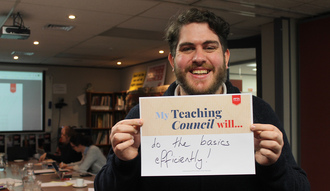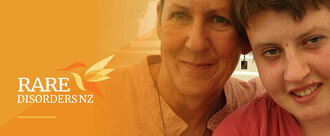-
Make All Resource Consents for Factory Farms Open to Public SubmissionThe Waikato Regional Council is currently processing two applications to build industrial factory farms in the region. Buchanan Ellis Ltd have applied to build 6 new sheds that will house 42,000 chickens each in Waerenga and PIC New Zealand Limited have applied to triple the size of their commercial piggery to house 12,000 pigs in Maramarua. Both of these applications are limited notification, meaning the Council is not allowing the public the right to make submissions on these resource consents. We believe that factory farms are an issue of importance for the entire Waikato community due to animal welfare, environmental and health concerns, not just an concern for those who happen to live directly beside one. More than 70 percent of New Zealanders are opposed to factory farming and the overwhelming majority of Waikato residents do not want more factory farms built in our region. We should have the right to express this view to our local council in a healthy democracy.207 of 300 SignaturesCreated by PAAW NZ

-
Paid Paternal LeaveRight now in New Zealand, paternal leave is optional and only at a maximum of up to 2 weeks of unpaid work leave. Extending this for a longer period of time with pay would have many benefits. Some of which include: a break for mothers, especially those who are suffering postnatal depression. As well as, fathers feeling more encouraged to take time off to spend with their baby, and research proves that this initial bond with fathers improves every aspect of the child hauora further along in life. The paid paternal leave provides the fathers with motivation to actually take time off. Being a parent is hard, although this would not make parenting a piece of cake, however, it would make it that much easier. Paternity leave in New Zealand: https://www.findlaw.co.nz/articles/4283/paternity-leave-in-new-zealand.aspx Modernising Parental Leave - Regulatory Impact Analysis: https://www.mbie.govt.nz/assets/f58553252a/ris-2015-modernising-parental-leave.pdf How does Swedish parental leave work? https://everythingsweden.com/parental-leave-in-sweden/ Few Kiwi dads taking paid parental leave for fatherhood https://www.nzherald.co.nz/nz/few-kiwi-dads-taking-paid-parental-leave-for-fatherhood/ORMFAUOCSWWZP6OEMQ3ZUR4QDM/165 of 200 SignaturesCreated by Brennaya Lawley
-
End school streaming - let all our tamariki thriveAs a nation we pride ourselves on being fair. We want to believe that no matter where you are born or into what circumstances, we all have an equal opportunity to achieve our potential. But right now, an unfair practice that divides and labels tamariki (children) from the very first day they arrive at school is standing in the way of that vision. This practice is known as streaming. It’s often called ‘in-class grouping’ in primary schools and ‘banding’ in secondary schools. At primary school, children are put into groups for reading or maths. The top groups get more challenging work, more teacher time and higher expectations. Being put in the bottom class takes away children’s motivation and self-belief. They begin to think of themselves as less clever or capable. Streaming is a systemic barrier to Māori success that operates at every level in our schools, particularly in mathematics and science. Our research has found streaming is one of the most significant barriers to future success, pushing rangatahi off course.[1,2] Streaming can determine the pathways available to kids long after the decision is made. Many students who were told they’re low ability, do not or cannot enter full NCEA courses. The impact of streaming narrows career choices to low skill, low paid, and high risk jobs and employment. We know that it is bad for everybody, but it is especially bad for Māori and Pasifika students. This is systemic racism in action. Ending streaming is one small step that will have a huge outcome for the futures of our rangatahi. An increasing number of schools around Aotearoa have decided to run mixed ability classrooms with incredible results. These schools have all used alternative ways of teaching and have seen students do better academically, especially Māori and Pasifika students. They used tools that brought teachers and students closer together - like learning more about each child’s passions and goals for maths, and scrapping arbitrary deadlines to assess students when they were ready. Academic achievement improves across the board, kids’ self-belief, motivation and aspirations soar, and social and ethnic barriers amongst the students decline. We need the government to step up to support an equitable education system that enables all rangatahi to be inspired by their future, confident in their culture, thriving in their work and empowered to succeed. Add your name today to join us in calling on the government to end streaming in schools and stand up for our tamariki! This is a movement led by Tokona Te Raki - The Maori Futures Collective http://www.maorifutures.co.nz/. *** [1] He Awa Ara Rau - A journey of many paths, 2019 https://knowledgeauckland.org.nz/media/1902/he-awa-ara-rau-a-journey-of-many-paths-berl-tsi-et-al-nov-2019.pdf [2] End streaming in Aotearoa, 2021 https://www.growwaitaha.co.nz/media/2173/ending-streaming-in-aotearoa-final.pdf [3] Kōkirihia, 2024 https://tokona-wp.s3.amazonaws.com/uploads/2022/12/Ko%CC%84kirihia-Final-1.pdf4,075 of 5,000 SignaturesCreated by Philip Prendergast
-
Save our maternity sector from crisisWhānau forms the foundation of our society. If we treat all families well and support them to thrive from the get go, our communities will flourish. We need to start investing real money and resources into whānau wellbeing, starting with maternity care. Over the last 12 months we’ve seen the ability of our government to respond rapidly and decisively to a crisis. We’ve seen them open their purse and pour money into our economy. We know that they’re capable of making big decisions to save lives and keep our communities safe. And now we need to see them step up with that same kind of energy to address the maternity crisis that we are in. Every pregnant person, parent and baby in Aotearoa deserves the very best care that we can provide as a society. The compassionate and skilled midwives and doctors providing life-changing and life-saving care across Aotearoa deserve to work in conditions where their wellbeing - as well as that of their patients - is protected. Right now we’re not even coming close, but together we have the power to change this. Our government works for us, and it’s our responsibility to join our voices and demand that our government solves this crisis. Not through incremental changes and stop-gap funding, but through a full rebirth of our maternity sector. Thank you for signing this petition. Further Information: PMMRC 14th Annual Report (2021) https://www.hqsc.govt.nz/our-programmes/mrc/pmmrc/publications-and-resources/publication/4210/ PMMRC recommendations https://www.hqsc.govt.nz/assets/PMMRC/Publications/14thPMMRCreport/Appendices_B-F_Recommendation_tables.pdf RANZCOG commentary on Maternal Mental Health https://ranzcog.edu.au/news/ranzcog-backs-call-for-action-to-reduce-inequitabl MERAS 2020 election priorities https://meras.midwife.org.nz/wp-content/uploads/sites/4/2020/07/MERAS-Election-Priorities.pdf Media commentary: https://www.rnz.co.nz/national/programmes/ninetonoon/audio/2018783765/baby-mortality-for-young-maori-pacific-indian-mothers-needs-urgent-action-report https://www.rnz.co.nz/national/programmes/ninetonoon/audio/2018783766/capital-s-hospital-maternity-service-stretched-paper-thin-midwives-union https://www.rnz.co.nz/news/national/436561/crap-pay-and-horrible-conditions-midwives-at-breaking-point-in-capital-dhb https://www.rnz.co.nz/news/national/436784/fatigue-burnout-as-dhbs-stretched-to-the-limit-union-warns7,707 of 8,000 SignaturesCreated by Kirsten Van Newtown
-
Take Action against Modern Slavery40 million people globally are in modern slavery. Unlike many other countries, New Zealand has no legislation that requires companies to undertake due diligence looking into the risks of modern slavery within their supply chains and taking actions to address those risks. Modern Slavery legislation is a key way for New Zealand companies to work together to eliminate modern slavery in private and public sector supply chains. WHAT IS MODERN SLAVERY? Modern slavery is the severe exploitation of other people for personal or commercial gain. Modern slavery is in the clothes you wear, the coffee you drink and the goods you love. WHY DO WE NEED A MODERN SLAVERY ACT? 40 million people globally are in modern slavery. There are more people in slavery now than in any other time in history. The world is small and interconnected. Every time we purchase a product there is a chain reaction felt around the world. No country or industry is unaffected. Unlike many other countries, New Zealand has no accountability legislation that addresses transparency in supply chains. This means that New Zealand companies could unknowingly be importing products or services by which people are exploited and enslaved. WHAT WOULD A MODERN SLAVERY ACT DO? Modern Slavery Acts make it easier for a consumer to expect slavery-free products and services from companies. They help prevent slavery through transparency and accountability. They require businesses to understand the risks of modern slavery in their purchasing, to report on those risks and take action to address them. They give the business community guidance and a level playing field. For further information, resources and to get involved check out our campaign website - https://www.signforfreedom.nz/20,874 of 25,000 SignaturesCreated by Trade Aid and World Vision .

-
STOP THE PAIHIA SEAWALLSPaihia is a jewel of the Bay of Islands, opposite Waitangi and Russell. Far North Holdings (FNH) has been given funding and the green light to build sea walls in Paihia harbour. This massive infrastructure project was approved as a 'fast track' shovel-ready project in the government’s Provincial Growth Fund in response to COVID19. The Paihia Sea Wall plan was a commercially defunct project that had been shelved for 15 years. FNH say the walls will be a way to restore Paihia's sandy beaches. However hapū, iwi, marine scientists and locals know the impacts will be disastrous. At low tide it’s likely the sea walls will be a monstrosity, hideously changing what was once a beautiful and picturesque view. Motu Maire, the main island out from Paihia which will be directly affected by the seawalls is, and has been, wahi tapu, a sacred and important place to local Māori for centuries. Local iwi Ngati Kawa and Ngati Rahiri have not been properly consulted on the decision-making of this project. Stopping the tidal flow with sea walls and dredging up the seafloor is environmental vandalism which could create unforeseen negative consequences, for example, the erosion of Paihia’s south beach, Te Tii beach and the multiple beaches on Motu Maire. Sedimentation within the wall’s confines is also another major concern. Endangered dotterels and other shorebirds nest on the southern beach of Motu Maire. The seawalls will completely alter the natural outlook from Paihia’s bustling commercial center, which is currently an amazing view over the Bay of Islands across to Russell. Business owners believe this project will ‘kill the goose that lays the golden egg’ for Paihia. While the project has had funding confirmed, much has changed in the world in that 15 years, and FNH made that application without any consultation with local māori (hapū) or the wider community to gauge support for the resurrection. It is entirely possible to restore the main beach of Paihia without the sea walls. The funding can be put to much better use - to projects that bring the hearts and minds of locals together in a positive and constructive way - and to solve the real problems the community is facing as a whole. Far North Holdings' sea walls must not go ahead! Add your name to tell the Council and FNH to preserve Paihia. This online petition is being run alongside an offline petition led by folk from Ngati Kawa and Ngati Rahiri.3,341 of 4,000 SignaturesCreated by Geoff Reid
-
Protect Abortion Services from HarassmentAbortion is safe, routine, legal health care in New Zealand. But it is not treated like other kinds of health care, because anti-abortion busybodies are allowed to harass people who receive abortion care, and those who provide it. A safe area is a designated space around an abortion service where anti-abortion activists are not allowed to harass people. They are often measured based on a radius from the door of the facility. The maximum radius would be 150 meters. Outside that area anti-abortion protesters are free to do as they like - but inside the safe areas they cannot target people trying to mind their own business. The abortion law reform bill last year passed without safe areas, because of a procedural error. This needs to be rectified so that people can go to their medical appointments without being bullied and abused. But the process the amendment bill sets out for creating a safe area is needlessly complicated. The process in the bill to get just ONE safe area requires an Order in Council on the recommendation of Cabinet's busiest minister (the Minister of Health) in consultation with Cabinet's second busiest minister (the Minister of Justice). Realistically, how many times is THAT going to happen? How many people have to suffer abuse and intimidation before a safe area is granted? Shouldn't the law prevent harm in the first place? We want everyone who needs abortion care to feel safe going to their medical appointments. We want everyone who provides abortion care to feel safe at their jobs. We want safe areas to be established around every place where abortion is provided from assent. The select committee can help make that happen by recommending a change to the bill, if we tell them that is what the people of New Zealand want. Let's tell them loud and clear. And then we need to make sure the bill passes! https://www.parliament.nz/en/pb/bills-and-laws/bills-proposed-laws/document/BILL_99649/contraception-sterilisation-and-abortion-safe-areas2,517 of 3,000 SignaturesCreated by ALRANZ Abortion Rights Aotearoa

-
Support Vaccines for People Not ProfitBased on current Covid vaccine supply projections, 9 out of 10 people in low-income developing countries won't get a vaccine in 2021. WTO rules allow pharmaceutical companies to enforce intellectual property rules like patents on their vaccines, blocking other manufacturers from producing the vaccine. This artificially restricts the supply of vaccines, driving up prices. In March, Aotearoa New Zealand should support the South African and Indian proposal at the World Trade Organisation to temporarily relax these rules for Covid-19 vaccines, so other manufacturers can increase global vaccine production and bring down prices. Currently wealthy countries are hoarding the limited supply of vaccine doses. Developing countries face a diminished allocation of vaccine doses, and a much longer pandemic. · This is unfair: access to life-saving equipment and medicines should not be based on who can pay; it should be based on need. · It is unsafe: delays on vaccinations around the world could leave us all unsafe. The virus, left to reproduce, will continue to mutate. · The free-for-all in buying up vaccines is exploitative: individuals and communities in developing countries have contributed to trials and are now being abandoned. · It will entrench global inequality: while wealthy countries get vaccines first, and their economies are able to open up, developing countries will still be fighting the pandemic. · Delaying worldwide vaccination will harm the global economy. A new study commissioned by the ICC Research Foundation found that the global economy could lose up to US$9.2 trillion if developing economies are denied access to Covid-19 vaccines. For more information on the People´s Vaccine and the South African and Indian proposal at the WTO, check out our article in The Spinoff: https://thespinoff.co.nz/society/29-01-2021/new-zealand-needs-to-get-on-board-the-peoples-vaccine/1,874 of 2,000 SignaturesCreated by NZ Alternative .
-
Open Letter - Let's show compassion to the Uyghur CommunityUyghur Solidarity Aotearoa NZ and Khadija Leadership Network are inviting you to sign this open letter to our Members of Parliament to consider Uyghurs as refugees under our Refugee Quota Programme. As time passes, we are all becoming familiar with the inhumane treatment of Uyghurs in China with over a million people being detained in camps without cause and against their will. As New Zealanders, we take pride in taking a global stance on issues of human rights, and our organisations are now inviting our decision-makers to consider how we could be doing more for the Uyghurs. Our government took a similar stance for asylum seekers detained in Australia. Considering the Uyghurs as part of our Refugee Quota Programme is a clear yet diplomatic way of showing China - and the international community - that we do not agree with these human rights abuses. The letter will be sent to all of our MPs, and we hope it yields further conversations with them in making this aspiration possible with the support of your endorsement. A huge thanks in advance from us if you decide to sign and support this kaupapa.1,367 of 2,000 SignaturesCreated by Khadija Leadership Network

-
Deplatform Sia's ableist movie 'Music'This film is ableist and includes the torture of Autism Spectrum Disorder people with a restraint method that has caused death and is a cause of massive trauma for those who have survived it. I'm really terrified about the underdiagnosis of autism. I spent 36 years not getting diagnosed for it because of media portrayals like this that are inaccurate and harmful. The fact that this has been greenlit by NZ's cinema complexes is highly disturbing. This will do damage to the ASD community as well as prevent people from getting treatment for ASD. The under diagnosis of ASD because of bad science and media portrayals has been labelled a "lost generation". You can read a harrowing paper on the effects here in a very accessible format for non-science people: https://www.liebertpub.com/doi/full/10.1089/aut.2019.006915 of 100 SignaturesCreated by Rory McCarthy

-
Create a Teaching Council that works for teachersThe teaching profession has been facing a supply crisis for a long time. Attracting and retaining quality teachers is paramount if we are going to maintain the high standards of teaching and learning that New Zealanders expect and deserve. The pressures of the job are already such that young graduates and those considering a career change feel they can earn better money and have a better work-life balance elsewhere. Having to cover the cost of a registration and certification personally – unlike nurses or social workers, for instance, whose registration costs are covered by their employers – is another barrier that the profession cannot afford. Teachers deserve a Teaching Council that they can trust, and that trusts them. If we are to keep the profession to the world-leading standard that it is today, we must honour that with fair fees, a high-trust model of certification, and a Council that performs its core functions effectively and efficiently. Nothing more, and nothing less.3,443 of 4,000 SignaturesCreated by Chris Abercrombie
-
Reform our healthcare system to include all New Zealanders living with a Rare Disorder“No country can claim to have achieved universal healthcare if it has not adequately and equitably met the needs of those with rare diseases.” Helen Clark, United Nations Sue Haldane, a mother of a child with a rare disorder (22q Deletion Syndrome), has spent 17 years dealing with barriers within our health system to ensure her daughter Lizzie’s needs are met. Now Sue is determined that the journey will be easier for future generations of New Zealanders living with a rare disorder – currently around 6% of the population, or 300,000 people. “I would make no changes to Lizzie’s lovely self, but I crave many, many changes to the world she lives in,” says Sue. Despite the low prevalence of each rare disorder (defined as a health condition that affects 1 in 2,000 people or less), collectively they affect many families, with 1 in 17 people living with a rare health condition – more than those diagnosed with diabetes. Sue is leading the Rare Disorders NZ collective petition to Parliament, calling for the establishment of a National Rare Disorder Framework. Despite the range of rare health conditions, the rare disorder community encounter many common barriers within our health system, including access to care, medicines and support. New Zealanders would be shocked to learn that we lag far behind most OECD countries in supporting people living with rare disorders and their families to access the best healthcare. Australia announced support of a national plan for rare disorder patients in late 2018, ensuring that no one is left behind. New Zealand needs inclusive policies which acknowledge barriers for the thousands of vulnerable children, adults and their caregivers who continue to fall through the cracks. We believe a shift in mindset is needed for rare disorders to stop being considered in isolation, and instead to be regarded as a significant factor within health policy frameworks. This is in alignment with the global rare disorder movement headed by Rare Disease International. It’s time for New Zealand to take rare disorders seriously to ensure equitable health outcomes for everyone. Rare is part of our communities and deserves a fair go. [Statement from UN Development Programme Administrator Helen Clark to the International Conference on Rare Diseases & Orphan Drugs, Cape Town, 20 October 2016.]3,632 of 4,000 SignaturesCreated by Amy Watson

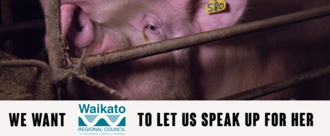

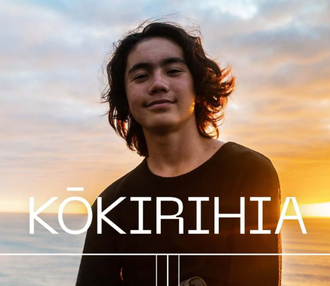
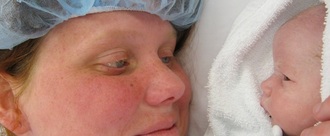
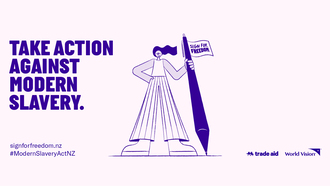
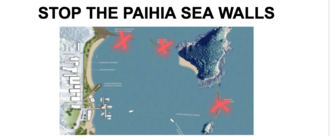

.png)


